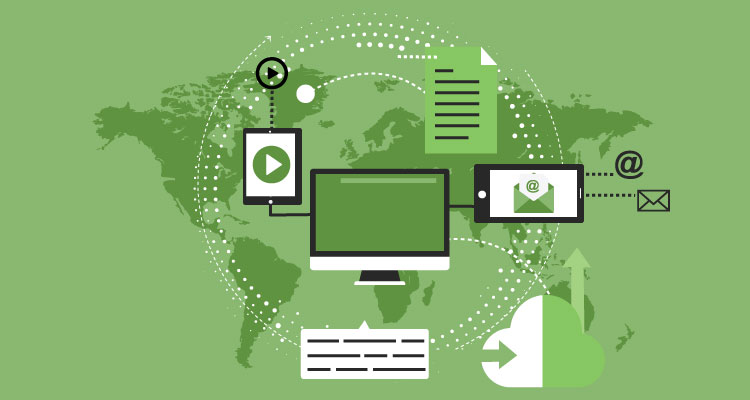Buffering. Is there any more frustrating word to see on your computer or phone screen? While in the days of dial up and DSL that word was ubiquitous with slow internet speeds, in the age of high speed internet it is more likely your slow loading times are coming from the data provider rather than your slow connection.
To solve this problem, companies big and small implement content delivery networks, or CDNs. CDNs help get your web pages, songs, and videos on your screen and in your earbuds faster. CDNs are a mysterious but integral part of internet infrastructure for most business leaders. However, the concept could lead to a make or break moment in your business’s success.
Table of Contents
ToggleWhat is a CDN?
A content delivery network is appropriately named for what it does. A CDN is a network of computers used to improve content delivery to end users on the internet. Let’s look at the example of the CDN run by Level 3 Communications, a major telecom company. Level 3’s CDN is one of the top three in the country and delivers a massive amount of data.
Large enterprises use the biggest CDNs, operated by companies like Level 3, Akamai, and Limelight Networks, to quickly send video content to users no matter where they are in the world. For example, let’s say a big content company emerges attempting to compete with Netflix and Hulu. Video files are large and slow to transmit, so one central server is not ideal in this case.
How do they work?
If the company had thousands of customers wanting to view the same video at once from many different locations around the United States, using one central server location could lead to overloaded servers, slow response times, and a poor user experience. Using the Level 3 CDN, however, a copy of that video would be saved in every large city in the country.
With the CDN, any time a user wanted to view the video, it would stream from the closest location to that particular user. This means the video content is being sent by many different servers in different locations, and because they are closer to the end user latency is much lower. This means files are served fast, efficiently, and effectively to each user.
How do large enterprises use CDNs?
Large enterprises like Microsoft, Apple, Facebook, Twitter, Google, Hulu, and Sony use CDNs to send data to billions of users around the world. Microsoft’s “Tuesday Patch” updates are delivered by CDN. Apple’s iTunes music and video is served by a CDN. Additionally, Facebook and Twitter photos come from CDNs. While they are optimized for video, any type of file can be delivered by CDN.
Amazon, one of the largest cloud computing providers in the world, found that a one second delay in loading time would cost about $1.6 billion in annual sales. Search giant Google found that 0.4 seconds in delays leads to 8 million fewer searches per day. With fractions of a second leading to such a major result, there is no surprise enterprises are willing to spend millions to increase their page and content delivery speeds.
How can your small business leverage a CDN?
As the manager of a startup or small business, how can you use a CDN? There are lots of ways! Just starting out, you want your website to be lightning fast. Several CDNs exist for the purpose, including Amazon CloudFront, Cloudflare, and MaxCDN.
CDNs offer a powerful option to improve web speeds
Whether your business is in content, sales, marketing, FinTech, or anything else, a content delivery network offers the ability to speed up your content. The cost varies depending on your needs, but there is an affordable option for nearly any business.
If you are on the web, you need fast, reliable content delivery. A CDN is the best way to get there.














